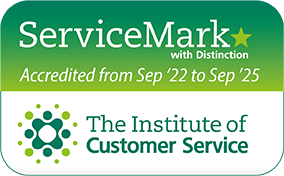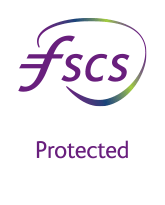We've broken down the mortgage jargon to give you an insight into the different types of mortgages available to you.
A buy to let mortgage is a loan for purchasing residential property with the aim of letting the property to tenants in the private rented sector.
The property is an investment asset on which the investor aims to earn a rental return and achieve capital gains as property prices rise over time.
If you're considering taking out this type of finance, there are some things to consider. Buying a property to rent out is a specialist area and very different to buying a home for yourself.
To begin with, it's a good idea to speak to letting agents in the area you're looking to buy a rental property - they'll be able to tell you if there's a demand, and how much rental income you could expect. The agent should also be able to tell you the most popular types of properties and areas.
Investment return
Whatever your reasons are for buying to let, you will want to make a return on your investment.
You'll need to know to know what factors may have a positive or negative impact on your investment. There is no guarantee on the level of investment return you will receive. The type of property, furnishings, tenant, agent, and economic conditions all affect the level of rent you can achieve.
What are the risks?
Demand for rental property can fluctuate and the value of your property could rise or fall. If demand falls, you might have times where your property is empty. There could also be other reasons why you may not be able to rent your property, for example, if the rent is too high.
What tenants are acceptable?
Lenders will want to get an idea of how much rent you can expect to receive and what types of tenants you intend to let your property to.
Lenders generally accept tenancies of between six and twelve months. You or your letting agent will arrange for the tenant to complete an Assured Shorthold Tenancy Agreement (AST) for the length of time they wish to rent. The terms within the agreement will protect both parties. You may wish to seek legal advice about the clauses contained in the tenancy agreement.
In general terms, acceptable tenants are employed persons, couples, and families. Some lenders will not lend to landlords who have Department of Work and Pensions tenants or students because the risk can be different. Bear this in mind when you are researching the availability of mortgages.
How do I find a tenant?
Most lettings agencies offer a service to find tenants. They will advertise your property, conduct viewings, and undertake referencing of potential tenants.
Once the contracts are signed, you can take over management of the tenancy, or you can sometimes pay a letting agent to do this for you. You will normally pay 10 to 15% of your gross rental income to a letting agent to manage your property. If you ask an agent to manage your property, make sure they are a member of ARLA (Association of Residential Letting Agents).
Which properties are acceptable for letting?
The property you choose must be suitable for letting and be located in an area where there is good demand. Lenders have different criteria for the properties they consider acceptable. Here are some tips on what to ask the agent:
-
If the property is a flat, is it freehold or ex-local authority? This may restrict your choice of lenders.
-
If the property is a home of multiple occupancy (HMO) – these properties are typically let to students and not every lender accepts this.
-
Leasehold properties – confirm the length of the lease, as this can restrict future saleability and whether it is acceptable to your chosen lender.
-
Any property to rent out must have a minimum Energy Performance Certificate (EPC) rating of E. You can check this with the agent or on the gov.uk register.
What are the tax implications?
We cannot advise on this as we are not specialists. Tax implications will depend on your circumstances, so we advise you contact a professional for specialist advice.
Is there anything else I need to know?
You need to be aware of your legal responsibilities as a landlord. This includes repairs to the property, compliance with fire safety regulations, and the safety of gas and electrical appliances. You will also need to have adequate buildings insurance in place.
You may also want to take legal advice on landlord and tenant law to familiarise yourself with the dos and don’ts of letting a property. If your mortgage payments are not maintained, your property is at risk of repossession.
Other useful sources of information for landlords are:




